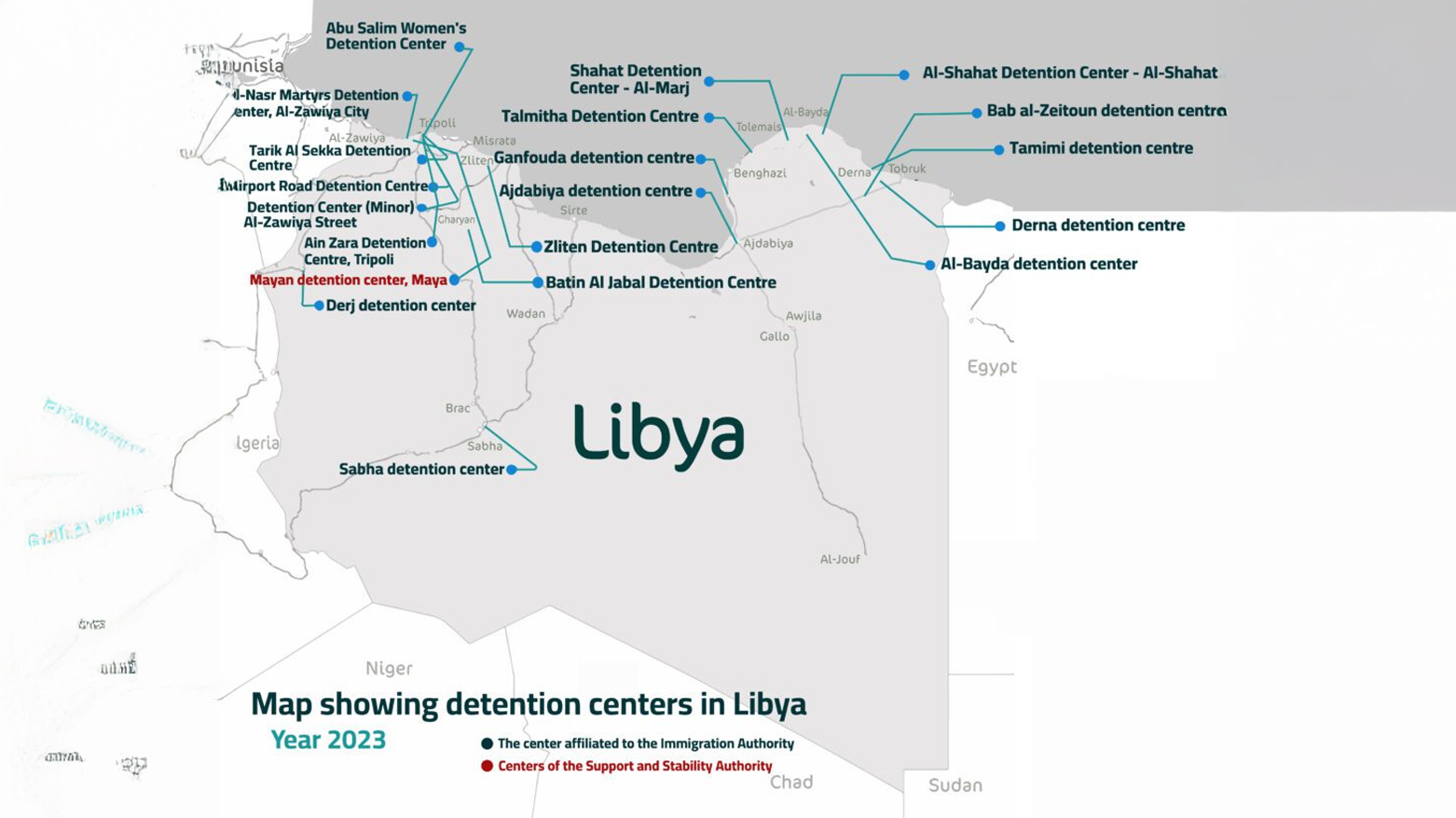Iraqi citizens freed in Libya after months of diplomatic efforts
Libya is extremely perilous for refugees and migrants, who face widespread abuses—especially in militia-run detention centers.

By Ahora Qadi
ERBIL (Kurdistan 24) – The Iraqi embassy in Tripoli announced the release of several Iraqi nationals who had been detained in Libya for attempting to migrate illegally to Europe.
Ahmed Sahhaf, spokesperson for the Iraqi diplomatic mission in Libya, confirmed in a local media statement that five Iraqi citizens, who had been arrested for illegal migration, were freed. These individuals were reportedly seeking to reach Europe through Libya, a common transit route for migrants.
Sahhaf also noted that the latest release follows the liberation of seven other Iraqis on March 19 and 20, who had similarly been detained for unauthorized migration attempts. The operation to secure their freedom was the result of three months of negotiations between the Iraqi embassy and Libyan National Unity Government.
Embassy Assistance and Humanitarian Support
The Iraqi embassy in Libya provided the freed detainees with medical services, temporary shelter, and travel documents to facilitate their voluntary return home. Sahhaf emphasized that all necessary measures had been taken to ensure their safe repatriation to Iraq.
In light of the growing risks of irregular migration, the Iraqi diplomatic mission reiterated its warning to young Iraqis, urging them to reconsider illegal migration routes and avoid falling victim to human trafficking networks that exploit vulnerable migrants.
Libya’s Ongoing Migrant Crisis
Libya has been a major transit point for migrants and asylum seekers fleeing economic hardship and conflict, particularly from sub-Saharan Africa and the Middle East. Since the country’s political upheaval in 2011, instability and the collapse of state institutions have exacerbated the humanitarian crisis.
In eastern Libya, human trafficking networks operate with impunity, detaining migrants in large warehouses in cities such as Tobruk, Benghazi, and Sirte. Reports indicate that these migrants are subjected to extortion, forced labor, and physical abuse until their families pay ransoms for their release.
Despite ongoing efforts by Libyan authorities to dismantle human smuggling operations, the situation remains dire. Many migrants continue to face forced relocation to remote areas such as Kufra in southern Libya, where they are often deported under inhumane conditions.
Iraqis Among Thousands Stranded in Libya
According to the International Organization for Migration (IOM) and the UN Refugee Agency (UNHCR), Libya hosts approximately 705,746 migrants as of April 2024. While most come from African nations such as Niger, Mali, and Somalia, others—including Iraqis and Syrians—see Libya as a stepping stone to Europe.
Libya’s Dangerous Detention Centers
According to Global Detention project, Libya remains an extremely perilous country for refugees and migrants, who routinely face a litany of abuses—particularly in the country’s numerous detention centers, many of which are controlled by militias. Conditions in these facilities are deplorable: chronic shortages of food and water, severe overcrowding, physical abuse, and torture are rampant. Forced labor and modern-day slavery are widespread, while meaningful oversight is virtually nonexistent.
Despite these well-documented horrors, Europe continues to forge controversial migration agreements with Libya aimed at curbing Mediterranean crossings. These arrangements include funding and training Libyan forces to intercept and "rescue" migrants at sea, investing in detention centers, and even funneling money to militias tasked with migration control.
Critics argue that such policies effectively outsource border enforcement to abusive actors, trapping vulnerable people in cycles of exploitation. Yet with migration remaining a politically charged issue in Europe, the EU and member states show little sign of abandoning their approach—despite the human cost.